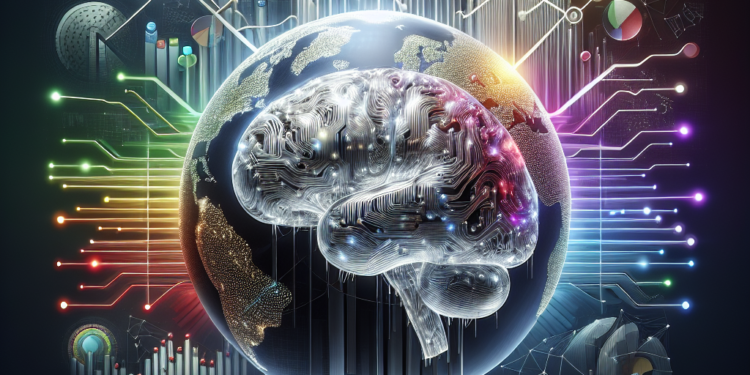Artificial intelligence (AI) has experienced rapid growth and development over the past few decades, transforming various industries and sectors in the process. One of the areas where AI has had a significant impact is on global economic policies. The use of AI technologies in economic analysis, forecasting, and policymaking has enabled governments and organizations to make more informed decisions and develop effective strategies to address economic challenges.
One of the key ways in which AI has influenced global economic policies is through data analysis and predictive modeling. AI technologies have the ability to process vast amounts of data and identify patterns and trends that may not be apparent to human analysts. By analyzing economic data in real-time and predicting future trends, AI systems can provide valuable insights to policymakers and help them make more accurate and timely decisions.
For example, AI-powered algorithms can analyze stock market data to identify potential risks and opportunities, helping governments and financial institutions to make better investment decisions. In addition, AI systems can analyze consumer behavior and market trends to help policymakers understand the impact of economic policies on different sectors of the economy and make adjustments accordingly.
AI technologies have also been used to develop economic forecasting models that can predict the future performance of economies and identify potential areas of growth or decline. By analyzing historical data and incorporating real-time information, AI systems can forecast economic indicators such as GDP growth, inflation rates, and employment levels with a high degree of accuracy. This can help governments and organizations to anticipate economic trends and develop proactive policies to mitigate potential risks and capitalize on opportunities.
Furthermore, AI technologies have the potential to revolutionize the way economic policies are formulated and implemented. AI-powered systems can analyze policy proposals and simulate their potential impact on the economy, enabling policymakers to identify the most effective and efficient strategies for achieving their economic goals. By using AI technologies to analyze complex economic relationships and inform decision-making processes, governments can develop evidence-based policies that are more likely to succeed in achieving their desired outcomes.
In addition to aiding in economic analysis and policymaking, AI technologies have the potential to transform the way economic policies are implemented and monitored. For example, AI-powered systems can be used to automate regulatory compliance processes and monitor economic indicators in real-time, allowing governments to respond quickly to emerging economic challenges and ensure that policies are being effectively implemented. By using AI technologies to streamline policy implementation and monitoring, governments can improve the efficiency and effectiveness of their economic policies and achieve better outcomes for their citizens.
AI technologies also have the potential to enhance international cooperation and coordination on economic policies. By providing governments with access to real-time economic data and analysis, AI systems can facilitate communication and collaboration between countries to address global economic challenges and promote sustainable growth. For example, AI technologies can be used to analyze trade patterns and identify opportunities for cooperation and exchange, helping countries to develop mutually beneficial trade agreements and policies.
Despite the numerous benefits that AI technologies can bring to global economic policies, there are also potential challenges and risks that need to be considered. For example, the use of AI in economic analysis and policymaking may raise concerns about data privacy and security, as AI systems require access to large amounts of sensitive economic data to function effectively. Additionally, there is a risk that AI algorithms may be biased or produce inaccurate results, leading to suboptimal policy decisions and unintended consequences.
Furthermore, the use of AI technologies in economic policies may also raise concerns about job displacement and economic inequality. As AI systems become increasingly sophisticated and capable of performing complex tasks, there is a risk that they may replace human workers in certain sectors of the economy, leading to unemployment and social unrest. In addition, there is a risk that AI technologies may exacerbate economic inequality by benefiting those who possess the resources and skills to use them effectively, while disadvantaging those who do not.
In conclusion, AI technologies have the potential to revolutionize global economic policies by providing governments and organizations with valuable insights and tools to make more informed decisions and develop effective strategies. By analyzing economic data, forecasting future trends, and simulating policy outcomes, AI systems can help policymakers to identify opportunities for growth, mitigate risks, and promote sustainable development. However, it is important for policymakers to carefully consider the potential risks and challenges associated with the use of AI in economic policies and develop appropriate safeguards to ensure that they are used responsibly and ethically. By harnessing the power of AI technologies in economic policymaking, governments can achieve better outcomes for their citizens and promote economic prosperity and stability on a global scale.













